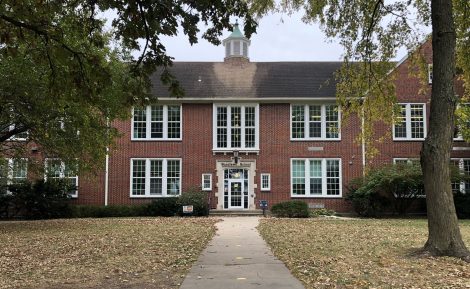First Bell: Final, final results from last week’s school board election; Scott Morgan shares top spot among write-ins; one school bans bringing lunches from home
A few education-oriented items from around the area and elsewhere:
The standings didn’t change, but the final numbers of votes for candidates for Lawrence school board did adjust slightly after Monday morning’s canvass by the Douglas County Commission.
Here are the final results, which I’m told include unchanged numbers for the small portion of the district that extends into Leavenworth County:
- Rick Ingram, a professor of psychology at Kansas University, received 3,650 votes, and increase of 38 votes.
- Shannon Kimball, an attorney — now stay-at-home-mom — who served on the Lawrence Elementary School Facility Vision Task Force, received 3,517 votes, an increase of 31 votes.
- Randy Masten, a retired U.S. Army intelligence officer now pursuing a doctoral degree at KU, received 3,506 votes, an increase of 31 votes.
- Keith Diaz Moore, an associate professor and associate dean of graduate studies in the School of Architecture, Design & Planning at KU, received 3,467 votes, an increase of 29 votes.
Marlene Merrill, an incumbent board member who had sought reelection, remained in fifth place with 3,126, an increase of 24 votes.
Other final tallies: Ola Faucher, 2,178; Bill Roth, 1,532; Jim Clark, 1,476; Diane Lindeman, 1,176; and Tyler Palmer, 769.
The top four vote-getters are scheduled to start their four-year terms July 1.
•••
In another not-so-closely watched race, two district residents shared the top spot among people receiving write-in votes.
Robert Glanton, whose address is listed as being south of Clinton Lake in Clinton Township, received five write-in votes. That equaled the five votes received by Scott Morgan, an incumbent board member and Lawrence resident who did not seek reelection.
Finishing in a tie for third among write-in recipients: Brady Morningstar, a guard on the Kansas University men’s basketball team who ran away with the write-in vote for Lawrence City Commission. In the city race, Morningstar received 50 votes, outdistancing three others — including former Mayor Boog Highberger — with three votes.
The four votes Morningstar received for school board placed him in a tie for third among write-ins with Ashley Winters.
Jamie Shew, county clerk, said that it took three employees a day and a half to count up and document all the write-in votes. Of the 152 write-in votes cast in the district race, he said, 129 had to be documented because they could be for a “viable” candidate, or at least someone alive who could be expected to take office.
Translation: Daffy Duck and Mickey Mouse don’t count, but others — Bill Self, Donald Trump and Lew Perkins each received one vote in the schools race — must be documented, just in case.
“It has to be someone who’s viable,” Shew said, noting that even “Barack Obama” would be counted if his name showed up on a Douglas County ballot, because of the possibility — however remote — of there being a nonpresidential Barack Obama living in the county.
“If it’s someone named John Wayne, there could be a John Wayne in Douglas County,” he said. “You can’t just discount them, because some people are named after famous people.”
Shew’s staffers also count plenty of regular names of not-at-all-famous people. If you check the list, you may notice that someone wrote in my name for Lawrence City Commission, putting me on equal footing with Coach Self, Agnes T. Frog and former Mayor John Nalbandian.
•••
For folks interested in the nutritional values of school lunches, I point you to this story from the Chicago Tribune, outlining how one school is prohibiting students from bringing lunches from home.
Administrators apparently have tired of students not eating well.
From the story:
At Little Village Academy, a public school on Chicago’s West Side, students only may pack lunches from home if they have a medical excuse.
Principal Elsa Carmona’s goal, according to the story: Protect students from their own unhealthful food choices.
“Nutrition wise, it is better for the children to eat at the school,” Carmona told the Tribune. “It’s about the nutrition and the excellent quality food that they are able to serve (in the lunchroom). It’s milk versus a Coke. But with allergies and any medical issue, of course, we would make an exception.”







